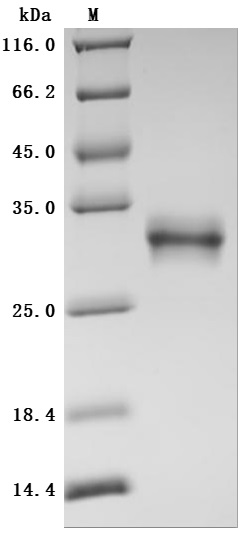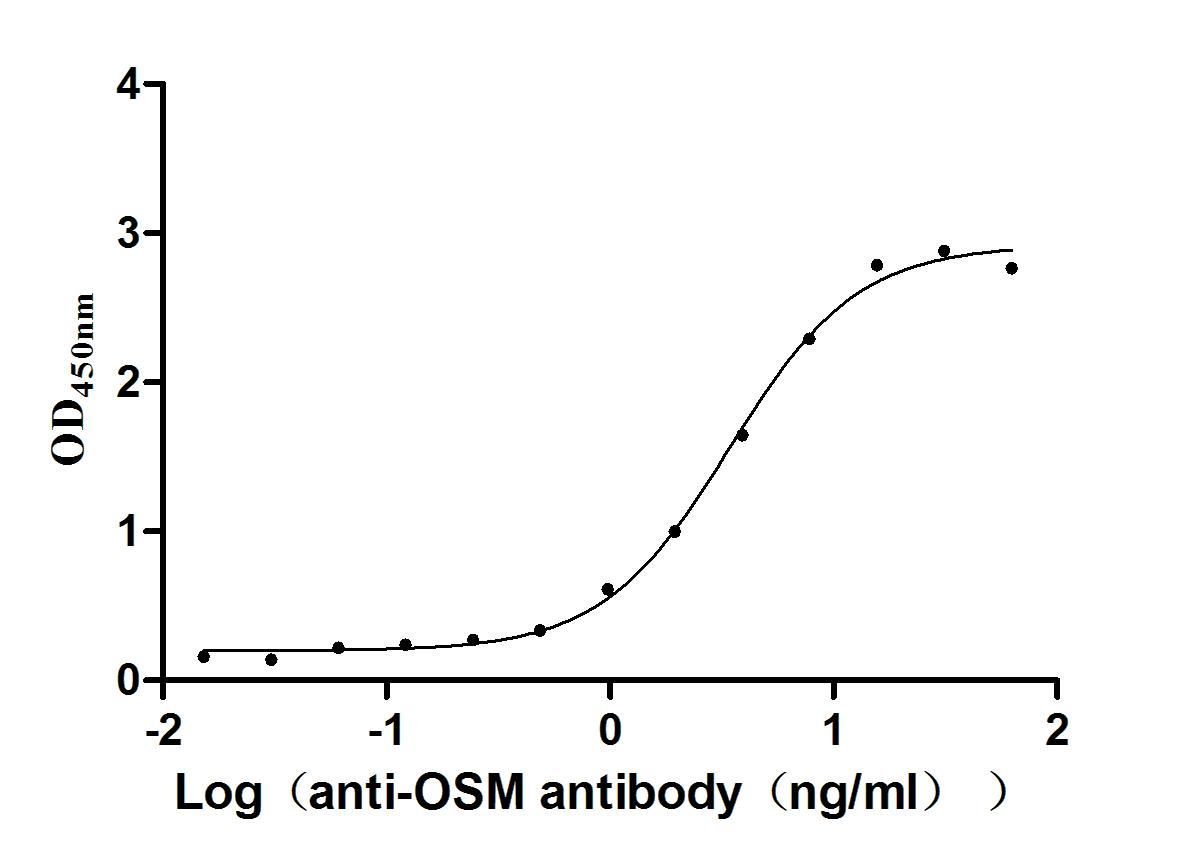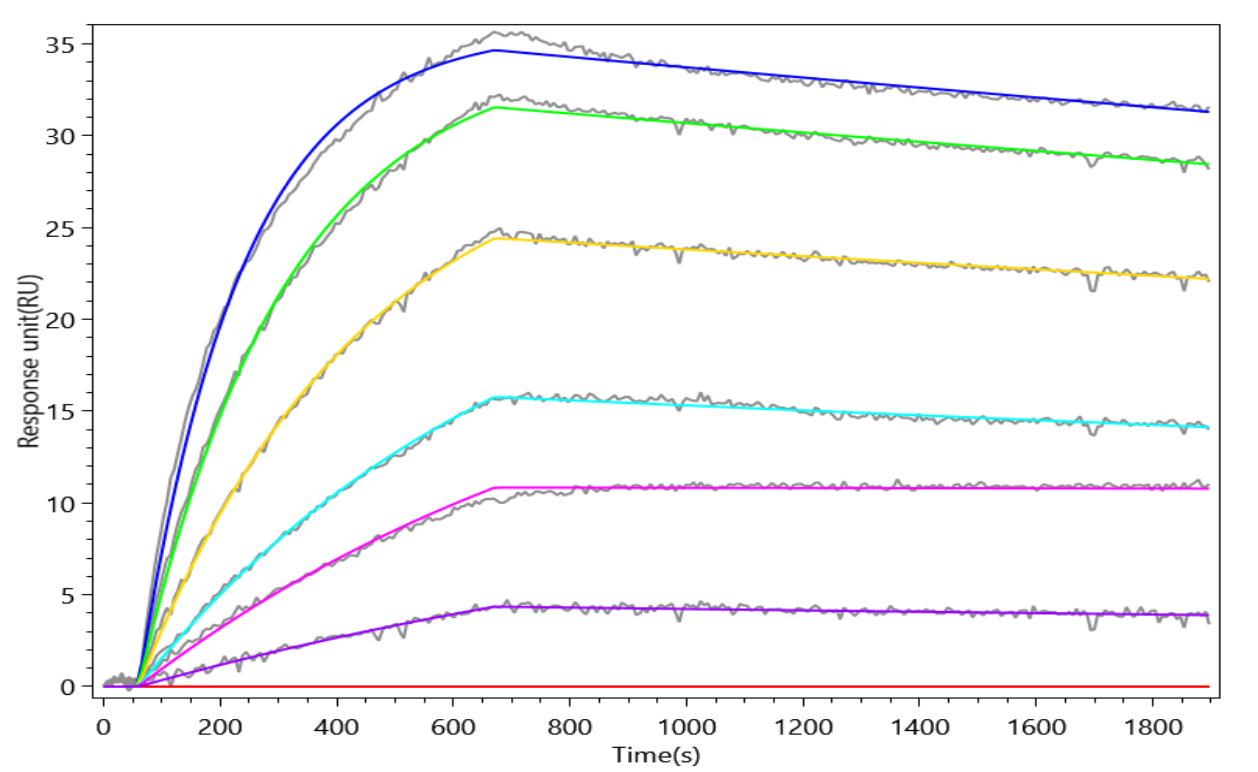Recombinant human OSM is synthesized using a mammalian cell expression system. The gene segment encoding human OSM (26-221aa) is linked with a 6xHis-tag gene at the C-terminus, then inserted into a plasmid vector. This recombinant vector is introduced into mammalian cells, which are cultured to prompt protein generation. The yielded recombinant human OSM protein is confirmed to be over 95% pure by SDS-PAGE, with endotoxin levels below 1.0 EU/ug via the LAL method. Its functional validation involves interactions with OSM recombinant antibody (CSB-RA017260MA1HU), with the EC50 of 3.048-3.860 ng/mL.
OSM belongs to the IL-6 family of secreted protein factors and plays a crucial role in maintaining the homeostasis of the body's environment under conditions of chronic inflammation. It exerts multifunctional regulatory effects in cellular proliferation, differentiation, hematopoietic system function, and inflammatory immunity in pathological and physiological processes. OSM acts as a pro-inflammatory or anti-inflammatory agent by inducing or inhibiting pro-inflammatory cytokines and chemokines during the inflammatory cycle. Higher concentrations of OSM have been detected in synovial fluid from rheumatoid arthritis patients. OSM has the potential to significantly induce joint damage and trigger inflammatory arthritis. OSM is closely related to inflammatory bowel disease (IBD). Increased expression of OSM in myocardial cells plays a protective role in the cardiovascular system. Therefore, OSM could be a potential therapeutic target for these diseases. Consequently, preparing active OSM protein can aid in clinical drug development and research related to OSM.






